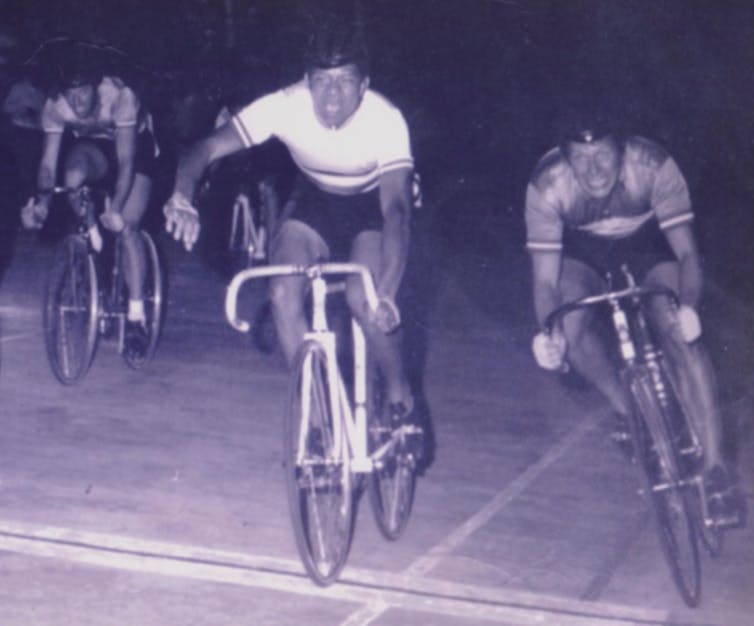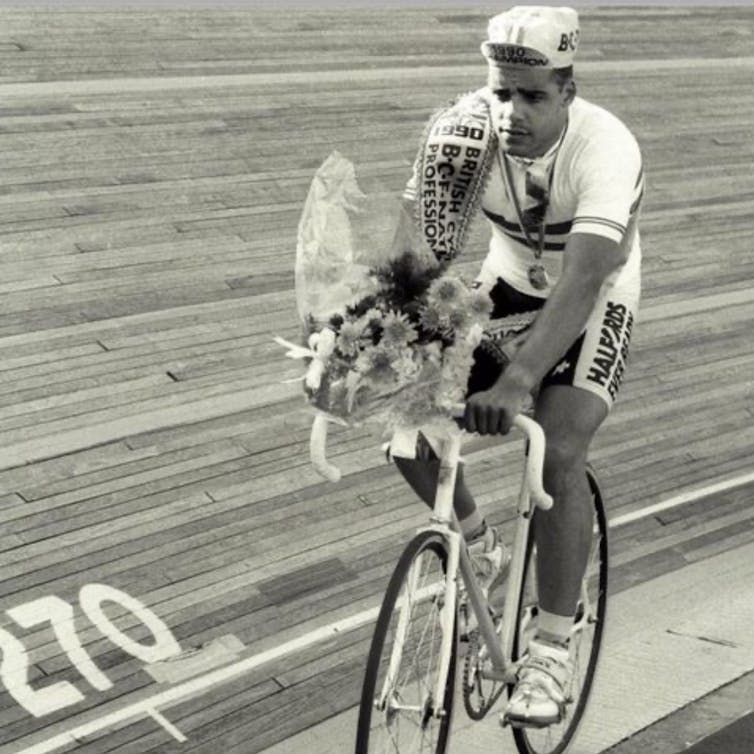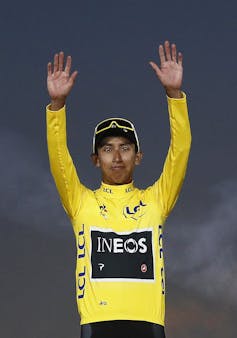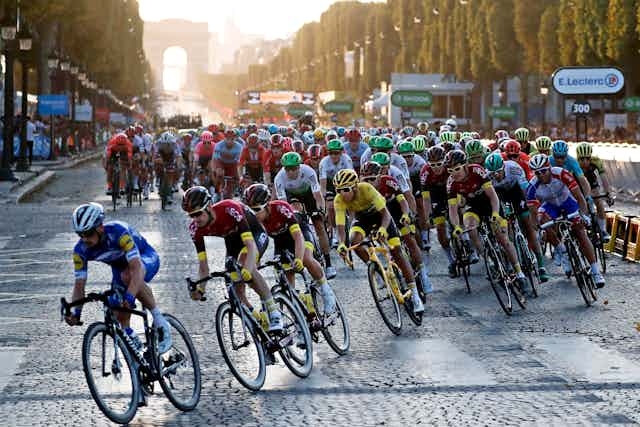This year’s edition of the Tour de France, cycling’s most prestigious event, begins on August 29. It would be a huge surprise if we see any riders during the event taking the knee and raising their fists in solidarity with Black Lives Matter and anti-racism, as has taken place this summer in sports such as football, cricket and rugby.
Cycling’s world governing body, the Union Cycliste Internationale (UCI), resumed its racing season on August 1 with the Strade Bianche race in Italy. Cyclists at this event and other UCI events which have followed have made no explicit gestures like the above mentioned sports towards championing anti-racism.
My research has shown evidence of racism and particularly anti-blackness in elite and professional cycling. In 2018 and 2019, I toured this research work as an exhibition across the UK for public engagement, sharing what I had uncovered and exposed as a history of inequalities suffered by black British athletes in road and track cycling from the grassroots to the highest levels.
Access to the dominant white world of cycling was the least of the issues for those very few British champion black athletes I spoke with in the course of my research. It was when they defeated the best of their white peers in high-stakes races that they became a serious threat to the status quo. Their existence in the white world of cycling became oppressive and difficult for them to navigate.

Take, for example, the experiences of Maurice Burton and Russell Williams in the prime of their careers. Between the 1970s and 1990s they amassed 21 British Championship titles between them. Nevertheless, they were both overlooked for Olympic selection.

Maurice left Britain and raced for a large amount of his career in Belgium. Russell stuck it out in Britain, but was short-changed for his efforts.
Another black British road-racer that followed was David Clarke. He was almost unbeatable as a prolific junior athlete, and after he won the Junior Tour of Wales in 1997, it was widely expected that he would be selected to represent Great Britain at the World Junior Championships later on that year, but the call never came.
UK cycling’s governing body, British Cycling, has given some attention to my research. Still, the extent to which it will reflect upon the historical evidence of racism given by black British cyclists is yet to be known.
The recent Black Lives Matter protests in the UK and across the world have also offered British Cycling the opportunity to provide their 160,000 membership with a strong message on anti-racism in cycling, as it looks to transform Britain into a great cycling nation. This opportunity seems to have been missed.
Anti-racist education
In the midst of the Black Lives Matter protests, the world-governing UCI produced a statement which spoke of “respect of diversity” and how the “federation is closely associated with the symbol of the rainbow – representing the five continents”.

However, there is a difference between championing diversity and championing anti-racism in cycling. The former speaks to broadening ethnic representation and inclusion. An increase in ethnic diversity (particularly non-white cyclists) may be seen by some as being the natural transformation of a culture seeking worldwide appeal. However, by others this can be seen as threat to that culture’s traditions and norms in athlete representation. The latter can increase racial ignorance and racial prejudices.
Therefore, anti-racist education and messaging in cycling must be constant. Championing anti-racism in cycling means undertaking a lengthy campaign to eliminate the violence of racist behaviours that seek to undermine and oppress people – generally black people.
In 2019, the Tour de France produced its first non-white winner: the Team Ineos rider Egal Bernal of Colombia. The possibility of a Colombian rider winning the tour was not a surprise. Colombian athletes have been given access to the dominant white world of cycling for nearly 40 years, crossing the symbolic cultural boundaries of Eurocentrism and whiteness. The presence and participation of Colombian cyclists are now accepted as a norm in the race.

Over the last few years, the ethnic diversity of riders at the Tour de France has grown. Black cyclists who have ridden in the race include French riders Yohan Gène and Kévin Reza, Daniel Teklehaimanot and Merhawi Kudus of Eritrea and Nicholas Dlamini of South Africa. However, the proportion of black riders in the Tour de France peloton remains extremely small.
It would be significant indeed if Bernal, along with Dlamini or Reza, decided to take the knee and raise a fist in solidarity with Black Lives Matter and anti-racism. What would be the response of their white European sponsors and peers? Would they see, understand and respect this message of anti-racism, joining them in solidarity, or would they shun them?

